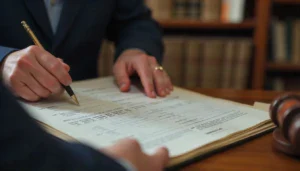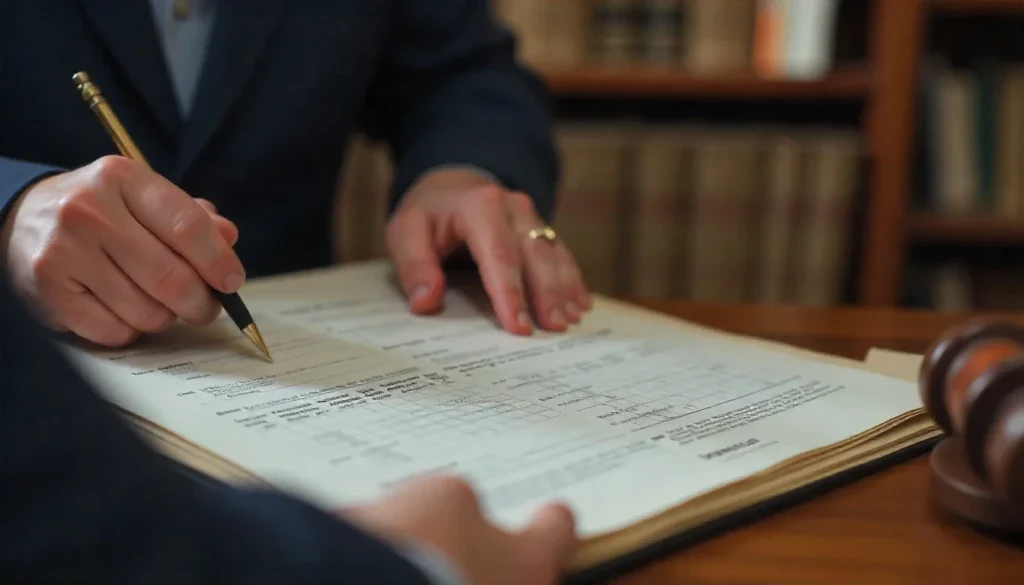Solicitors vs Conveyancers in NSW: Understanding the Key Differences
When dealing with property transactions, estate matters, or legal disputes in New South Wales (NSW), many individuals are unsure whether they need a solicitor, a conveyancer, or both. While the two professions share overlapping responsibilities, there are important differences that can affect the outcome of your legal matter—especially when it involves the transfer of property, estate administration, or criminal law issues.
In this comprehensive guide, we explain the key distinctions between solicitors and conveyancers, answer common questions such as “Do I need a solicitor and a conveyancer?” and help you make an informed decision based on your legal needs.
What Is a Conveyancer?
A licensed conveyancer is a legal professional who specialises in the legal aspects of buying and selling property nsw. Their primary role is to manage the conveyancing process, which includes:
-
Preparing and reviewing contracts of sale
-
Conducting title and property searches
-
Liaising with lenders and government bodies
-
Arranging settlement and property transfer
In NSW, conveyancers must be licensed under the NSW Fair Trading Department and operate within the guidelines of the Conveyancers Licensing Act 2003.
What Is a Solicitor?
A solicitor is a qualified legal practitioner who can advise clients on a broad range of legal matters, including:
Solicitors in NSW are regulated by the Law Society of New South Wales and must hold a current practising certificate.
Are Conveyancers and Solicitors the Same?

No—conveyancers and solicitors are not the same. While both can handle property transfers, solicitors are qualified to offer a wider scope of legal services. Conveyancers are specialists in property law only, whereas solicitors have legal training that allows them to handle complex matters involving multiple areas of law.
| Feature | Conveyancer | Solicitor |
|---|---|---|
| Can prepare contracts | ✅ Yes | ✅ Yes |
| Handles legal disputes | ❌ No | ✅ Yes |
| Advises on estate planning | ❌ No | ✅ Yes |
| Can represent you in court | ❌ No | ✅ Yes |
| Specialises in property law | ✅ Yes | ✅ Yes (with broader expertise) |
When Do You Need a Conveyancer?
A conveyancer may be suitable if you are:
-
Buying or selling a home or land
-
Transferring property title due to divorce or family settlement
-
In need of basic conveyancing without legal complications
However, if your property transaction involves disputes, tax issues, deceased estates, or trusts, it is safer to engage a solicitor.
When Do You Need a Solicitor?
You should engage a solicitor if:
-
The transaction is legally complex (e.g., buying off the plan, strata, or rural property)
-
You are dealing with a deceased estate or probate
-
There are family law issues related to property division
-
You anticipate legal disputes or need representation
-
You are also managing criminal charges or related proceedings
At Lyon Legal Services, our solicitors regularly assist clients in NSW who are navigating property matters alongside other legal challenges, such as estate claims or criminal charges.
The Legal Overlap: Can a Solicitor Do Conveyancing?
Yes, and in fact, many solicitors handle conveyancing every day—often with added legal insight that a conveyancer cannot offer. Solicitors can manage the entire conveyancing process plus provide legal advice on related matters such as:
-
Reviewing wills or powers of attorney
-
Advising on tax implications (like CGT or stamp duty)
-
Handling disputes with vendors or buyers
-
Assisting with estate administration during property sales
This is especially important if the property is part of a deceased estate, which often involves legal requirements beyond simple transfer of title.
Can I Use Both a Solicitor and a Conveyancer?
Technically, you can—but it’s usually unnecessary and potentially more costly. Most clients either:
-
Use a conveyancer for simple, uncontested transactions, or
-
Use a solicitor when legal complexity, estate issues, or disputes are involved
At Lyon Legal Services, we offer end-to-end legal services, including conveyancing, estate law, and criminal defence—so you don’t need to coordinate with multiple professionals.
Choosing Between a Solicitor and a Conveyancer in NSW
Here are some factors to consider:
✅ Use a Conveyancer if:
-
You’re buying or selling a home with no legal complications
-
You want a lower-cost solution for a standard property deal
✅ Use a Solicitor if:
-
The property is part of a deceased estate
-
You’re dealing with trusts, disputes, or divorce settlements
-
You need legal advice beyond just conveyancing
-
You are facing criminal charges or court matters connected to your property or finances
Cost Comparison: Conveyancer vs Solicitor
| Service Type | Conveyancer Cost | Solicitor Cost |
|---|---|---|
| Basic Conveyancing | $800 – $1,500 | $1,200 – $2,500 |
| With Legal Advice | Not Available | Included |
| Estate Matters | ❌ | ✅ |
| Legal Disputes | ❌ | ✅ |
While conveyancers are often more affordable upfront, solicitors offer broader protection and risk mitigation, which can save you thousands in the long run.
The Role of Solicitors in Deceased Estates
One of the most overlooked areas where solicitors outperform conveyancers is in estate law. If you’re transferring a property after someone has died, you’ll likely need to:
-
Apply for probate or letters of administration
-
Deal with beneficiary disputes
-
Navigate inheritance tax implications
-
Sell or transfer the property according to the will
These are all tasks that only a qualified solicitor can legally and competently manage.
Lyon Legal Services: Your Full-Service Legal Partner in NSW
At Lyon Legal Services, we don’t just handle paperwork—we provide strategic legal advice tailored to your circumstances. Whether you’re:
-
Buying your first home
-
Dealing with a deceased estate
-
Involved in a property dispute
-
Facing criminal charges alongside a family property matter
We provide comprehensive legal support that goes far beyond what a conveyancer can offer.
Final Thoughts: Making the Right Choice
Choosing between a solicitor and a conveyancer in NSW depends entirely on your legal needs. For straightforward transactions, a licensed conveyancer may be suitable. But if your situation involves legal complexity, estates, disputes, or court proceedings, engaging a qualified solicitor is essential.
At Lyon Legal Services, we offer affordable, expert legal solutions tailored for NSW residents, from conveyancing to criminal defence and deceased estates.
Need help with a property transaction or estate matter?
Contact Lyon Legal Services today for a confidential consultation.


















